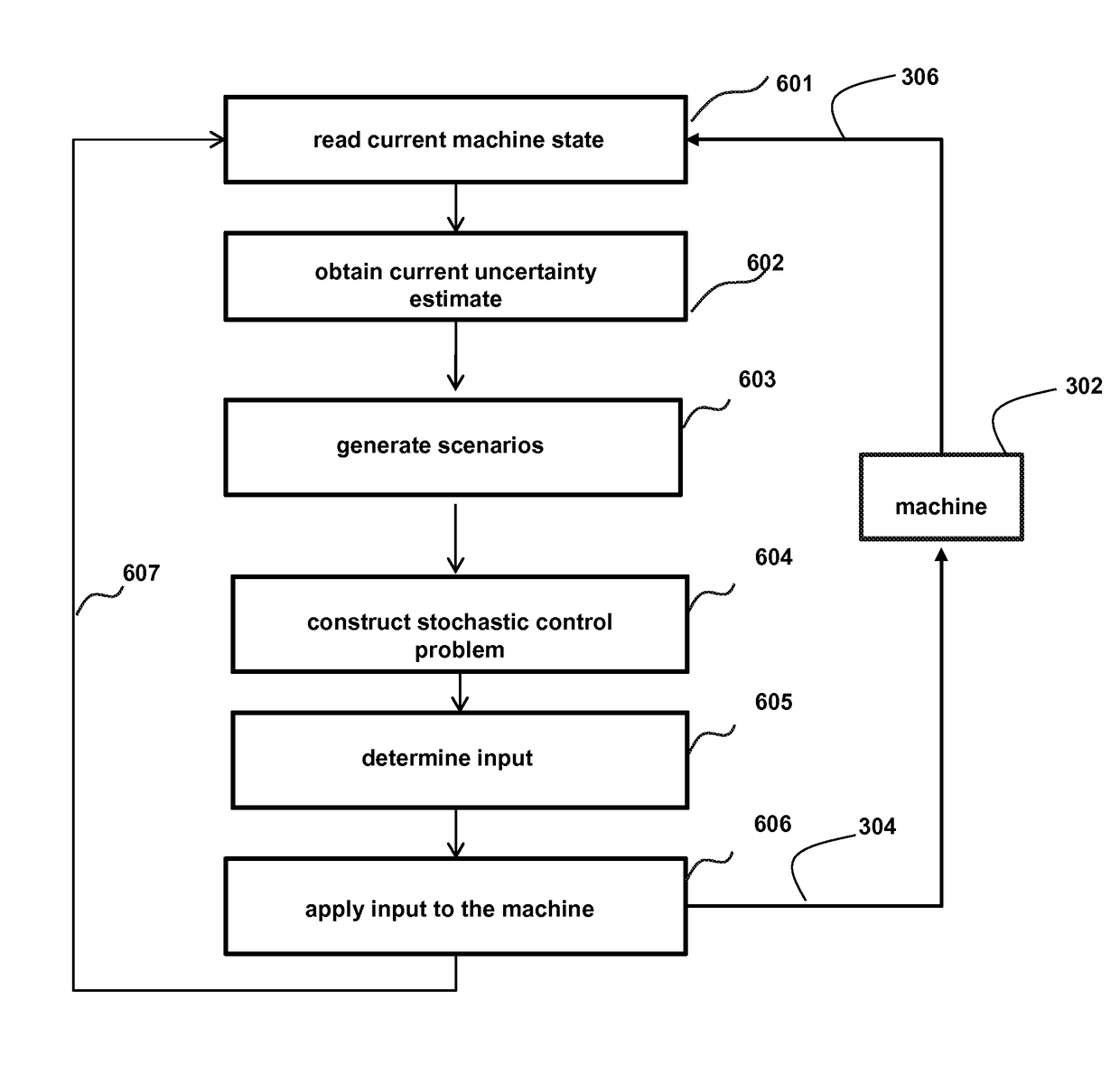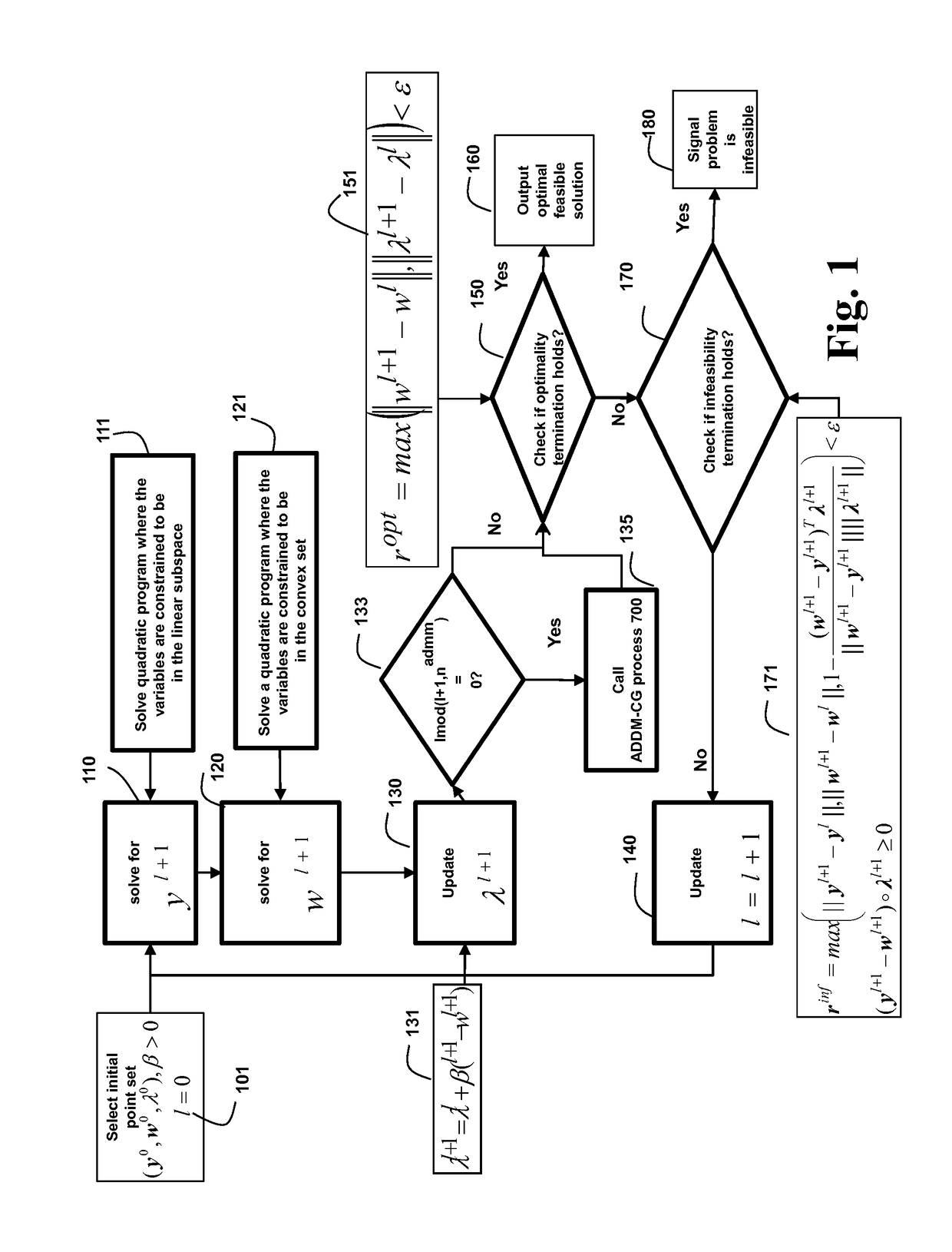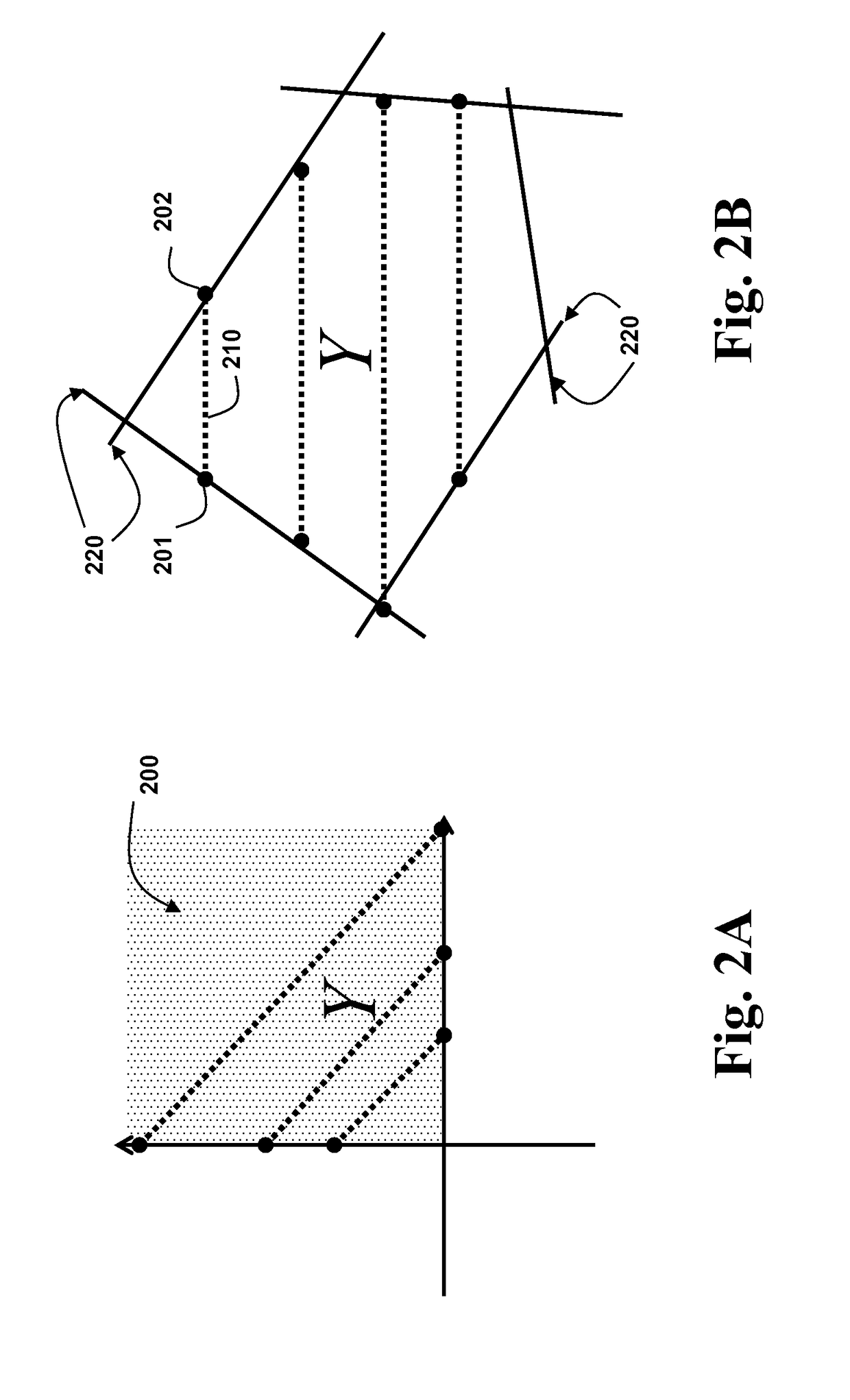Optimal parameter selection and acceleration in ADMM for multi-stage stochastic convex quadratic programs
a multi-stage stochastic convex quadratic and parameter selection technology, applied in adaptive control, process and machine control, instruments, etc., can solve the problems of inability to meet the requirements of inability to meet the requirements of computing hardware commonly used in real-time control and signal processing applications, and inability to compute per iteration of those methods. to achieve the effect of minimizing the violation of constraints
- Summary
- Abstract
- Description
- Claims
- Application Information
AI Technical Summary
Benefits of technology
Problems solved by technology
Method used
Image
Examples
Embodiment Construction
Controller and Machine
[0033]FIG. 3 shows a controller 301 and a machine 302 using alternating direction method of multipliers (ADMM) according to embodiments of the invention. Of particular interest to the invention is the application of ADMM to model predictive control (MPC) problems with uncertain parameters, herein called the Stochastic MPC (StMPC).
[0034]The term “machine” is used generally because it is well understood that MPC has been used for decades in chemical and oil refineraries. Generally, models used in MPC are intended to represent the behavior of complex dynamical systems. The additional computations of the MPC is generally not needed to provide adequate control of simple systems, which are often controlled well by proportional integral-derivative PID controllers.
[0035]Common dynamic characteristics that are difficult for PID controllers include large time delays, constraints, multiple control inputs, and high-order dynamics. MPC models predict the change in the depen...
PUM
 Login to View More
Login to View More Abstract
Description
Claims
Application Information
 Login to View More
Login to View More - R&D
- Intellectual Property
- Life Sciences
- Materials
- Tech Scout
- Unparalleled Data Quality
- Higher Quality Content
- 60% Fewer Hallucinations
Browse by: Latest US Patents, China's latest patents, Technical Efficacy Thesaurus, Application Domain, Technology Topic, Popular Technical Reports.
© 2025 PatSnap. All rights reserved.Legal|Privacy policy|Modern Slavery Act Transparency Statement|Sitemap|About US| Contact US: help@patsnap.com



